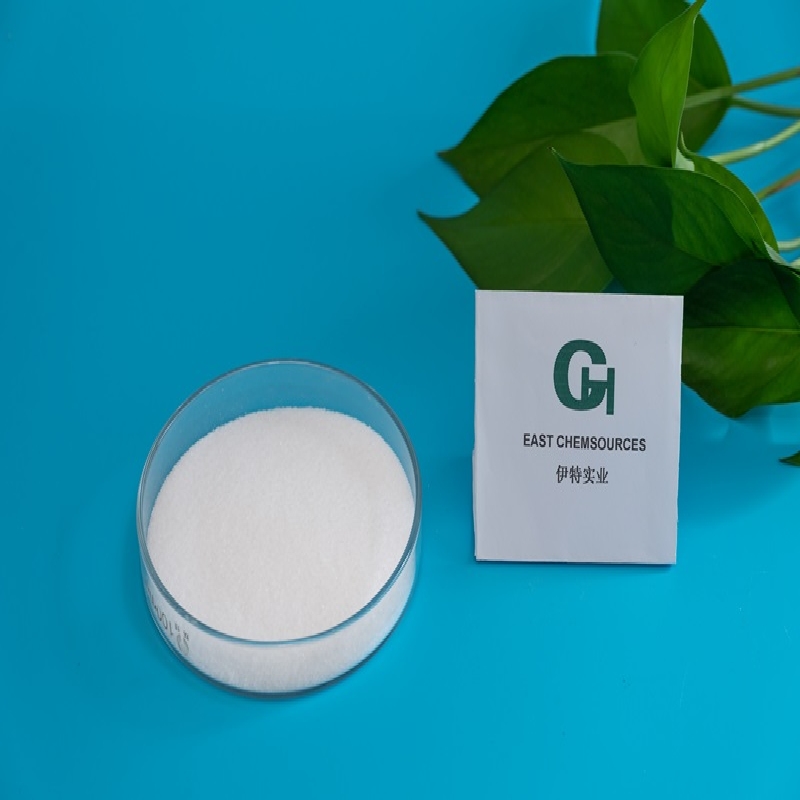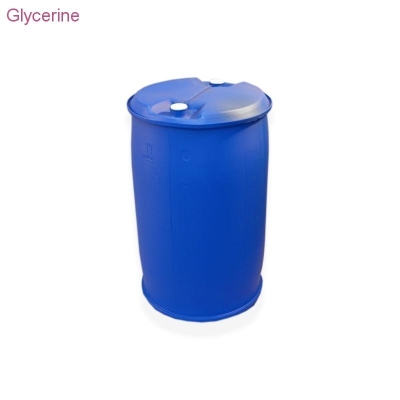-
Categories
-
Pharmaceutical Intermediates
-
Active Pharmaceutical Ingredients
-
Food Additives
- Industrial Coatings
- Agrochemicals
- Dyes and Pigments
- Surfactant
- Flavors and Fragrances
- Chemical Reagents
- Catalyst and Auxiliary
- Natural Products
- Inorganic Chemistry
-
Organic Chemistry
-
Biochemical Engineering
- Analytical Chemistry
- Cosmetic Ingredient
-
Pharmaceutical Intermediates
Promotion
ECHEMI Mall
Wholesale
Weekly Price
Exhibition
News
-
Trade Service
Introduction Helicobacter pylori (Hp) is a ubiquitous microorganism, present in about 50% of the global population
.
China is a country with a high incidence of H.
pylori infection.
Epidemiological survey results of H.
pylori infection in large-scale natural populations in multiple centers show that the H.
pylori infection rate in China is 40%-90%, with an average of 59%
.
Chronic Hp infection can lead to gastric atrophy and even metaplastic changes, and infected individuals will develop gastrointestinal diseases of varying degrees, such as indigestion, chronic gastritis, peptic ulcer, and gastric cancer
.
The most common transmission route of H.
pylori infection is oral-oral or fecal-oral contact, and family transmission is one of the main ways of its infection
.
Signs and symptoms of H.
pylori infection In general, patients with H.
pylori infection do not experience symptoms
.
If signs and/or symptoms occur, possible manifestations include: nausea, vomiting, abdominal pain, heartburn, diarrhea, morning hunger, bad breath,
etc.
Diagnosis of H.
pylori infection For patients with suspected H.
pylori infection, the following laboratory tests may be helpful in the diagnosis of the disease: Fecal antigen test: with high specificity (98%) and high sensitivity (94%), can be positive in the early stage of infection result
.
Fecal antigen testing can be used to detect H.
pylori eradication
.
Urea breath test (13C and 14C): It has the advantages of relatively high detection accuracy and specificity, convenient operation, and is not affected by the patchy distribution of Hp in the stomach, but when the detection value is close to the critical value, the results should be judged carefully
.
Serum antibody detection: With high specificity and sensitivity, it can be used to detect newly infected patients, but for patients after H.
pylori eradication therapy, due to the long-term existence of serum antibodies, it is impossible to confirm the current infection and use it for follow-up
.
Imaging tests are not helpful in the diagnosis of H.
pylori infection, but may be useful in patients with complex diseases such as gastric ulcer, gastric cancer, gastric mucosa-associated lymphoid tissue lymphoma (MALToma)
.
Esophagogastroduodenoscopy (EGD): In patients with symptoms of peptic ulcer disease, the condition of the gastric and duodenal mucosa is usually examined
.
Biopsy combined with EGD: Biopsy specimens are obtained from the gastric antrum and corpus and examined histologically
.
Echocardiography with EGD: Patients with a positive gastric MALTomas biopsy must have this type of workup for more precise staging of the disease
.
Treatment of Hp infection In principle, all Hp positive patients have to be treated
.
Antibiotic resistance should be considered when choosing a treatment regimen, and antibiotics with low resistance should be preferred
.
The traditional triple regimen is no longer suitable as a first-line Hp eradication regimen in most areas of China
.
At present, the bismuth quadruple regimen is recommended as the main empirical treatment for Hp eradication in China, that is, standard dose proton pump inhibitor + standard dose bismuth + 2 kinds of antibacterial drugs, including a total of 7 kinds of plans, the specific combination of antibacterial drug doses are as follows: Amoxicillin (1000 mg, 2 times/day) + Clarithromycin (500 mg, 2 times/day) Amoxicillin (1000 mg, 2 times/day) + Levofloxacin (500 mg, 1 time/day or 200 mg) , 2 times/day) amoxicillin (1000 mg, 2 times/day) + furazolidone (100 mg, 2 times/day) tetracycline (500 mg, 3-4 times/day) + metronidazole (400 mg, 3 times/day) -4 times/day) tetracycline (500 mg, 3-4 times/day) + furazolidone (100 mg, 2 times/day) amoxicillin (1000 mg, 2 times/day) + metronidazole (400 mg, 3 times/day) -4 times/day) amoxicillin (1000 mg, 2 times/day) + tetracycline (500 mg, 3-4 times/day) after the initial treatment failure, one of the remaining regimens can be selected for rescue therapy
.
The choice of regimen should be based on the local H.
pylori antimicrobial resistance rate and personal history of drug use, weighing the efficacy, drug cost, adverse reactions and drug availability
.
Patients with H.
pylori infection usually do not require surgical intervention, but may need to be considered in patients with serious complications such as cancer
.
References: [1] Santacroce L.
Helicobacter Pylori Infection.
Medscape.
2021 Jul 21.
[2] National Clinical Research Center for Digestive Diseases (Shanghai), National Alliance of Early Cancer Prevention and Treatment Centers of the Digestive Tract, Digestive Disease Branch of Chinese Medical Association Helicobacter pylori and peptic ulcer group, et al.
Expert consensus on the prevention, control and management of Helicobacter pylori infection in Chinese households (2021) [J].
Chinese Journal of Digestive Medicine, 2021,41(04):221-233.
[ 3] Chinese Medical Association, Journal of Chinese Medical Association, General Practice Branch of Chinese Medical Association, et al.
Guidelines for primary diagnosis and treatment of Helicobacter pylori infection (2019) [J].
Chinese Journal of General Practitioners, 2020(05):397- 402.
.
China is a country with a high incidence of H.
pylori infection.
Epidemiological survey results of H.
pylori infection in large-scale natural populations in multiple centers show that the H.
pylori infection rate in China is 40%-90%, with an average of 59%
.
Chronic Hp infection can lead to gastric atrophy and even metaplastic changes, and infected individuals will develop gastrointestinal diseases of varying degrees, such as indigestion, chronic gastritis, peptic ulcer, and gastric cancer
.
The most common transmission route of H.
pylori infection is oral-oral or fecal-oral contact, and family transmission is one of the main ways of its infection
.
Signs and symptoms of H.
pylori infection In general, patients with H.
pylori infection do not experience symptoms
.
If signs and/or symptoms occur, possible manifestations include: nausea, vomiting, abdominal pain, heartburn, diarrhea, morning hunger, bad breath,
etc.
Diagnosis of H.
pylori infection For patients with suspected H.
pylori infection, the following laboratory tests may be helpful in the diagnosis of the disease: Fecal antigen test: with high specificity (98%) and high sensitivity (94%), can be positive in the early stage of infection result
.
Fecal antigen testing can be used to detect H.
pylori eradication
.
Urea breath test (13C and 14C): It has the advantages of relatively high detection accuracy and specificity, convenient operation, and is not affected by the patchy distribution of Hp in the stomach, but when the detection value is close to the critical value, the results should be judged carefully
.
Serum antibody detection: With high specificity and sensitivity, it can be used to detect newly infected patients, but for patients after H.
pylori eradication therapy, due to the long-term existence of serum antibodies, it is impossible to confirm the current infection and use it for follow-up
.
Imaging tests are not helpful in the diagnosis of H.
pylori infection, but may be useful in patients with complex diseases such as gastric ulcer, gastric cancer, gastric mucosa-associated lymphoid tissue lymphoma (MALToma)
.
Esophagogastroduodenoscopy (EGD): In patients with symptoms of peptic ulcer disease, the condition of the gastric and duodenal mucosa is usually examined
.
Biopsy combined with EGD: Biopsy specimens are obtained from the gastric antrum and corpus and examined histologically
.
Echocardiography with EGD: Patients with a positive gastric MALTomas biopsy must have this type of workup for more precise staging of the disease
.
Treatment of Hp infection In principle, all Hp positive patients have to be treated
.
Antibiotic resistance should be considered when choosing a treatment regimen, and antibiotics with low resistance should be preferred
.
The traditional triple regimen is no longer suitable as a first-line Hp eradication regimen in most areas of China
.
At present, the bismuth quadruple regimen is recommended as the main empirical treatment for Hp eradication in China, that is, standard dose proton pump inhibitor + standard dose bismuth + 2 kinds of antibacterial drugs, including a total of 7 kinds of plans, the specific combination of antibacterial drug doses are as follows: Amoxicillin (1000 mg, 2 times/day) + Clarithromycin (500 mg, 2 times/day) Amoxicillin (1000 mg, 2 times/day) + Levofloxacin (500 mg, 1 time/day or 200 mg) , 2 times/day) amoxicillin (1000 mg, 2 times/day) + furazolidone (100 mg, 2 times/day) tetracycline (500 mg, 3-4 times/day) + metronidazole (400 mg, 3 times/day) -4 times/day) tetracycline (500 mg, 3-4 times/day) + furazolidone (100 mg, 2 times/day) amoxicillin (1000 mg, 2 times/day) + metronidazole (400 mg, 3 times/day) -4 times/day) amoxicillin (1000 mg, 2 times/day) + tetracycline (500 mg, 3-4 times/day) after the initial treatment failure, one of the remaining regimens can be selected for rescue therapy
.
The choice of regimen should be based on the local H.
pylori antimicrobial resistance rate and personal history of drug use, weighing the efficacy, drug cost, adverse reactions and drug availability
.
Patients with H.
pylori infection usually do not require surgical intervention, but may need to be considered in patients with serious complications such as cancer
.
References: [1] Santacroce L.
Helicobacter Pylori Infection.
Medscape.
2021 Jul 21.
[2] National Clinical Research Center for Digestive Diseases (Shanghai), National Alliance of Early Cancer Prevention and Treatment Centers of the Digestive Tract, Digestive Disease Branch of Chinese Medical Association Helicobacter pylori and peptic ulcer group, et al.
Expert consensus on the prevention, control and management of Helicobacter pylori infection in Chinese households (2021) [J].
Chinese Journal of Digestive Medicine, 2021,41(04):221-233.
[ 3] Chinese Medical Association, Journal of Chinese Medical Association, General Practice Branch of Chinese Medical Association, et al.
Guidelines for primary diagnosis and treatment of Helicobacter pylori infection (2019) [J].
Chinese Journal of General Practitioners, 2020(05):397- 402.







